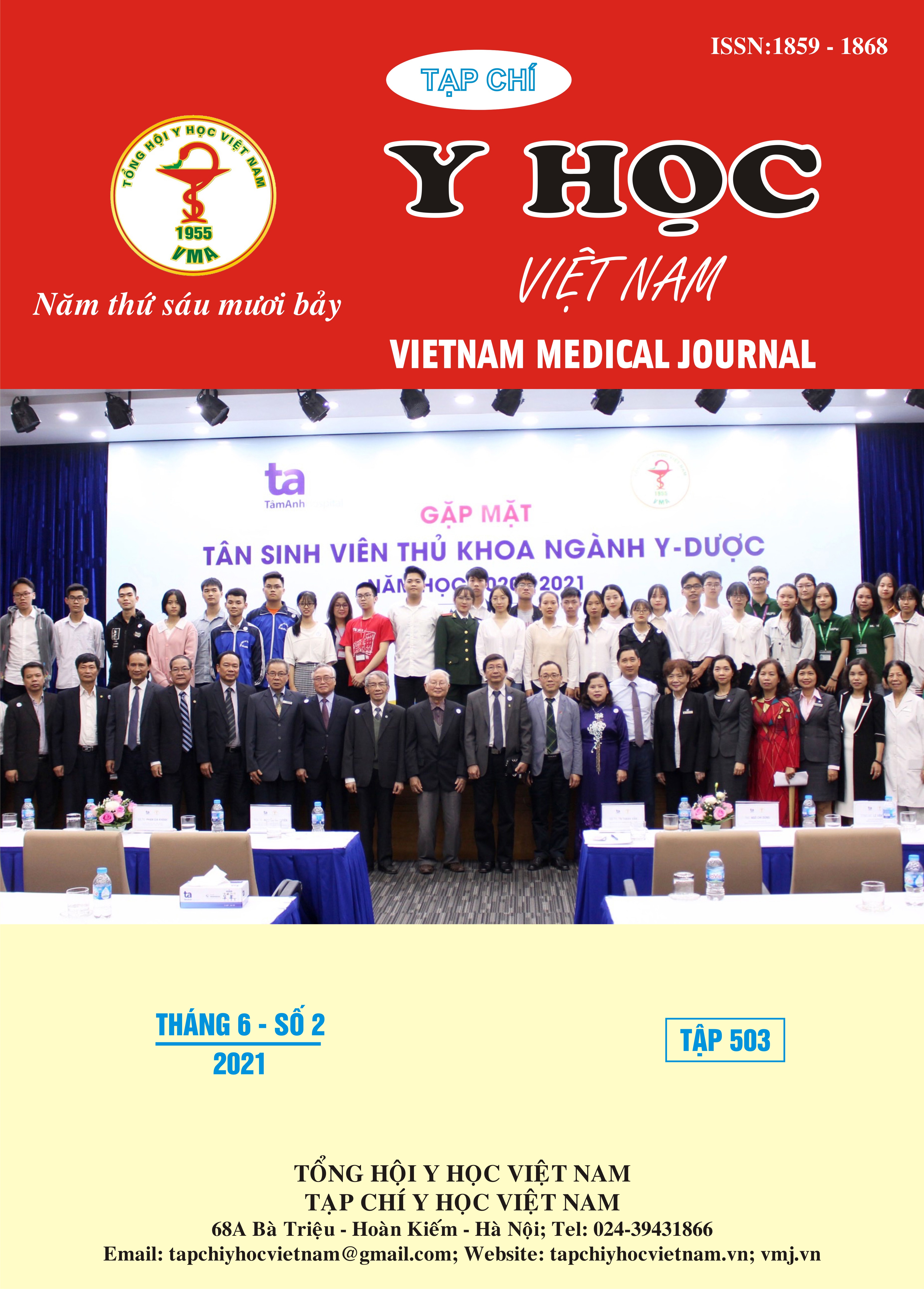ALLERGIC CHARACTERISTICS AND RESULTS OF PROVOCATION TEST IN PATIENTS WITH ANTI-TUBERCULOSIS DRUG ALLERGY
Main Article Content
Abstract
Background: Early detection of hypersensitivity reactions and appropriate management should be taken to optimize the treatment of tuberculosis. Objective: Description of hypersensitivity reactions from first-line antituberculosis drugs and results of drug provocation test at National Lung Hospital. Methods: Cross-sectional study of 86 pulmonary tuberculosis patients with signs and symtomps of hypersensitivity reactions, who were hospitalized and treated in the Department of Respiratory Tuberculosis at National Lung Hospital from August 2018 to June 2019. Excluded from the study were patients with anaphylaxis, severe allergy, SJS, Lyell syndrome, DRESS and who have uncontrolled obstructive airway (FEV1 <70%). Results: 48 patients (55.8%) were detected urticaria, rash; 85 patients (98.8%) were detected pruritus. Cutaneous lesions: 55% at level 2, 39% at level 3 and 6% at level 4. Symptoms treatment before drugs provocation test: average duration of treatment is 4.3 days (1-16 days), 33,7% cases must be taken both antihistamines and corticosteroids. 81 patients were applied drugs provocation test with a total of 346 tests, of which 80 had a positive test. Prevalence of allergic drugs from high to low respectively: RIF, PZA, EMB, INH. 54 patients were allergic to only 1 drug, 13 patients were allergic to 2 drugs, nobody was allergic to 3 drugs or more. Most patients had positive provocation test on the 2nd or 3rd day of protocol. Conclusion: The TB treatment regimen consists of a combination of drugs, so when an allergic reaction occurs it is very difficult to diagnose the drug that causes the reaction. However, when performing drug provocation test, it can identify correctly the cause of allergy.
Article Details
Keywords
hypersensitivity reactions, ADR, drug provocation test
References
2. Nguyễn Văn Đoàn (2005). Nghiên cứu dị ứng thuốc chống lao trên bệnh nhân lao điều trị nội trú tại viện lao và bệnh phổi trung ương. Tạp chí nghiên cứu y học, 4, 52–57
3. Nguyễn Viết Nhung và Nguyễn Trọng Thông (2016). Phát hiện, đánh giá, xử trí tác dụng không mong muốn của thuốc chống lao. Cẩm nang hướng dẫn sử dụng thuốc điều trị lao. nhà xuất bản Thanh niên, Hà Nội.
4. Bộ Y tế (2018). Quyết định về việc ban hành hướng dẫn chẩn đoán, điều trị và dự phòng bệnh lao
5. Gholami K., Kamali E., Hajiabdolbaghi M. và cộng sự. (2006). Evaluation of anti-tuberculosis induced adverse reactions in hospitalized patients. Pharm Pract (Granada), 4(3), 134–138
6. Siripassorn K., Ruxrungtham K., và Manosuthi W. (2018). Successful drug desensitization in patients with delayed-type allergic reactions to anti-tuberculosis drugs. Int J Infect Dis, 68, 61–68


